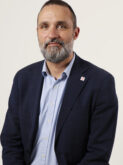Paris Summit: more and better financing is needed for the transition
On 22nd and 23rd of June, the Summit for a new Global Financing Pact, initiated by Emmanuel Macron and Mia Mottley, Prime Minister of Barbados, will take place in Paris. This Summit will be a success for climate if it enables us to spend more on the climate transition, to spend better, and if it influences the ongoing reform of international development financing.
As an emerging country with a strong planning culture, Indonesia signed a partnership agreement in 2022 to accelerate the country’s transition. In practice, the $20 billion, raised in equal parts by the international public and private sectors, will be used to finance an investment plan led by national authorities to decarbonise the country’s electricity sector. Unfortunately, this new type of partnership for transition does not cover all countries and all sectors. However, it is interesting because it is based on the needs expressed by developing countries; it enables the transition of a sector to be considered as a whole; it brings economic and financial players together around the same table; and it identifies where financing from international development banks is the most structuring, and where national resources can take over.
This is an example to bear in mind as the Summit for a new Global Financing Pact takes place in Paris on 22nd and 23rd of June, bringing together many heads of state and government. The stated aim of the Summit is to contribute to the reform of the international financial architecture, set up seventy years ago at Bretton Woods and deemed obsolete to meet both the development needs and the climate transition of countries of the global South. This means reforming the International Monetary Fund and the World Bank as well as all the public development banks, whether multilateral, bilateral or national.
Such a reform must overcome two challenges. The first challenge is to make more money available to developing countries. What is needed? Around $1,000 billion a year until 2025 (2,400 billion thereafter), excluding China. Far from what is available today. Several options are on the table: increased risk-taking by development banks, new sources of financing such as a tax on financial transactions, renegotiation of debt, mobilisation of special drawing rights, etc. The success of the Summit will therefore be measured first and foremost by the amounts announced.
The success of the Summit will also have to be measured against the second challenge of the major reform underway: spending better. Spending better by starting from the priority needs identified by the countries themselves to decarbonise, by putting international public money where it is most structuring and by helping governments, national public banks and private players to do the rest. This is typically, the kind of thing that the partnership with Indonesia is doing.
To meet this second challenge, public banks need to help countries draw up their plans for financing the transition and, rather than financing yet another wind turbine that the private sector can take over if the right public policy framework is in place, they need to concentrate on what is structuring: the public policy framework itself, the alignment of countries’ financial markets with the Paris Agreement….. They need to move from a volume-based approach to an impact-based approach. This is a change of approach, a turning point that international, bilateral and even national development banks must take. The Summit for a New Global Financial Pact will be a success if the announcements made there reflect this change of approach.
Finally, the Paris Summit will be a success if its conclusions are taken up and give a push to the many events that will mark the year between now and COP28 and beyond, with a view to reforming the international development financing architecture. This will be no easy task for the French President and his diplomatic teams. As, in parallel with a new Financial Pact between North and South, he must at the same time redefine the Financial Pact for the Climate Transition in France.
